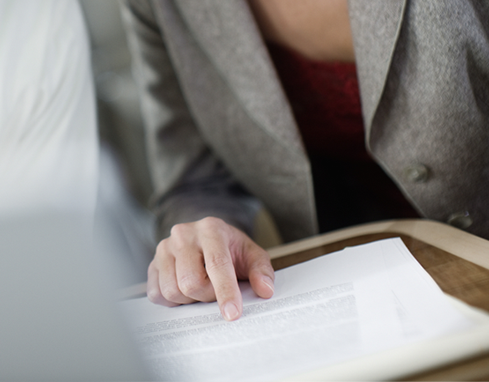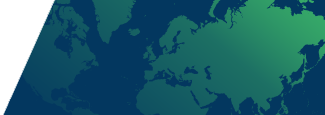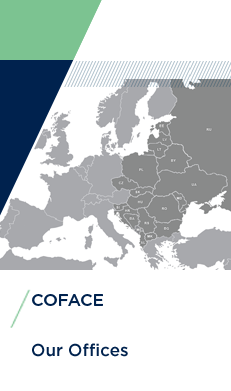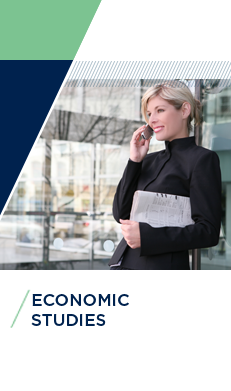

Congo
Synthesis
major macro economic indicators
| 2020 | 2021 | 2022 | 2023 (e) | 2024 (f) | |
|---|---|---|---|---|---|
| GDP growth (%) | -6.2 | -0.2 | 1.7 | 3.5 | 4.0 |
| Inflation (yearly average, %) | 1.8 | 1.7 | 3.0 | 3.3 | 3.2 |
| Budget balance (% GDP) | -1.2 | 1.6 | 6.6 | 4.5 | 5.0 |
| Current account balance (% GDP) | 13.5 | 11.9 | 21.2 | 14.0 | 18.0 |
| Public debt (% GDP) | 112.1 | 107.9 | 92.5 | 99.0 | 92.0 |
(e): Estimate (f): Forecast *excluding debts of public companies and not guaranteed SNPC debts
STRENGTHS
- Abundant natural resources (oil, gas, iron ore, wood, potash) and agricultural potential
- Strategic position in Central Africa
WEAKNESSES
- Very high public debt
- Dependence on oil (50% of GDP) and volatility of oil prices
- Widespread extreme poverty combined with a corrupt extractive system and a lack of fair distribution of the oil windfall
- Authoritarian regime and cumbersome public policies, plus the risk associated with the presidential successor
- Under-investment in transport, health and education
- Low attractiveness to foreign investment outside the extractive sector due to poor governance
- Several long-term oil fields due to mature
- Exposure to climate change which could hamper agricultural development (rising temperatures and erratic rainfall over the last 10 years)
Risk assessment
Economic recovery confirmed, underpinned by oil production
Congolese economic growth will not have benefited from an increase in oil prices in 2023 as it did in 2022, but from increased oil production. Growth could further increase in 2024 thanks to a positive contribution from trade, since exports will be based on a 6.5% increase in oil production and will also be supported by an expansion of the non-oil sector, which is expected to be around 4%. Diversification of the economy is the linchpin of the structural reforms of the 2024-2026 Development Plan, its primary objective being to support and develop the gas, agricultural and mining sectors. For example, the government is continuing to open protected agricultural zones throughout the country, which consist of grouping and granting prepared land and providing the necessary equipment. The aim is to improve food security and reduce imports of agricultural products by intensifying production. In addition, the Marine XII offshore block, launched by ENI and Lukoil, should start producing liquefied natural gas in December 2023, with the aim of reaching 3 million tonnes by the end of 2025. At the instigation of the IMF, the government must introduce measures to combat corruption, while a worsening business climate and numerous arrears are holding back investment, particularly outside the extractive sector. The Congo Basin Forest, which covers 60% of the country, could enable the country to attract new investment and private financing via ESG bonds or carbon offset credits. Private consumption is unlikely to rebound, with 52% of the population expected to be still living below the poverty line in 2024. As 80% of food consumption is imported, households will continue to be penalised by high global prices and rising petrol prices. When public fuel subsidies were reduced, the price of petrol rose by 25% in July 2023. Hence, in 2024, inflation should stabilise at the moderate level seen in 2023, mainly driven by food prices. In June 2023, the BCEAO (Central Bank of West African States) maintained its key rate at 5%. Monetary tightening should come to an end in 2024 as inflation stabilises at a level close to the 3% target and, with the CFA franc pegged to the euro, the BCEAO will follow in the footsteps of the ECB, which should also halt its tightening.
A heavily-indebted country
The budget surplus has fallen in 2023 compared with its peak in 2022, mainly because of the fall in oil revenues on back of falling prices, equivalent to 7 percentage points of GDP. Nevertheless, in 2024, the government will continue to see its non-oil revenues rise and its expenditure fall. The increase in development spending and the clearing of domestic arrears will be more than offset by a further reduction in fuel subsidies, which will be cut to a third between 2023 and 2024.
In January 2022, the country agreed a USD 455 million Extended Credit Facility with the IMF. It is accompanied by a programme aimed at fiscal consolidation and debt sustainability through spending efficiency, the fight against corruption and transparency. Despite the regular appearance of fresh arrears, particularly domestic arrears, which were quickly cleared, the IMF considers public debt to be sustainable. It is falling slightly as a percentage of GDP thanks to its recent restructuring, growth in the non-oil sector, reforms and high hydrocarbon prices. In 2024, public debt denominated in CFA francs will represent 50% of GDP and external debt (which is falling) 40%. Multilaterals will hold 60% of external debt.
In 2023, the trade surplus narrowed, as the effect of lower oil prices outweighed that of higher production. In 2024, oil prices will rise again, though not to the 2022 level, which will improve the current account surplus relative to 2023. The services balance will remain in deficit due to the non-oil sector and the diversification of the economy.
The President is serving his fourth five-year term
President since 1972, with an interruption from 1992 to 1997, Denis Sassou-Nguesso was re-elected President of the Republic on 23 March 2021 in elections contested by the opposition. The following year, his party, the Parti Congolais du Travail (PCT), won a large majority in parliament. Having revised the constitution in 2015, Denis Sassou-Nguesso is eligible for a fifth term in the 2026 presidential elections, at which time he will be 82. In addition, the President and those close to him have been the target of a number of corruption and fraud scandals (the Pandora Papers, suspicions of embezzlement by the oil company Orion Oil, the ill-gotten gains affair). The lack of fair distribution of the oil windfall and widespread extreme poverty are fuelling social discontent, which the authorities are anxious to contain by limiting price rises. Nevertheless, they will not hesitate to crack down if the protests gain momentum.
France remains a privileged economic partner despite the French justice system's investigations into corruption. The Congo maintains close relations with China, which holds a large share of the country's external debt (36.6% in 2023) and is a major destination for Congolese oil. In August 2023, the PCT and the Chinese Communist Party signed a memorandum of understanding to reaffirm their cooperation. The Republic of Congo, which is neutral with regard to the conflict between Russia and Ukraine, drew closer to Moscow by signing five bilateral cooperation agreements in September 2022, including a project to build an oil pipeline linking Pointe-Noire to Brazzaville.
Last updated: October 2023



